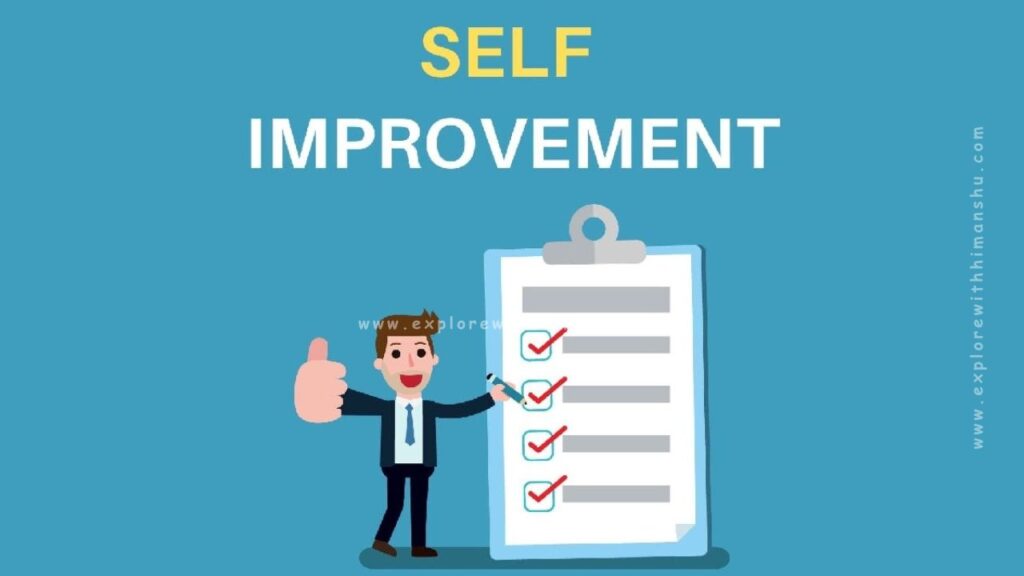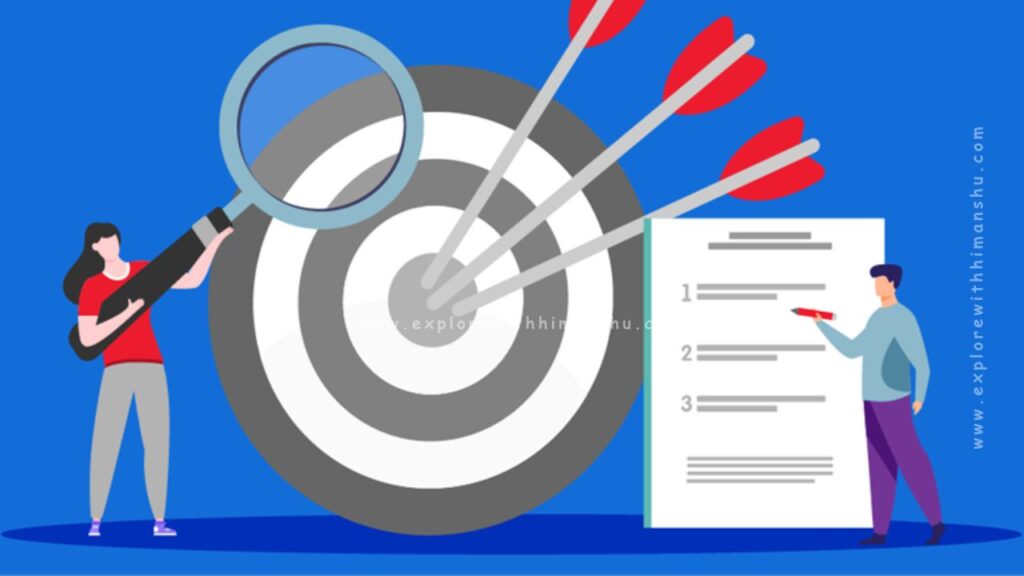Introduction :-
Self-improvement is the ongoing process of enhancing one’s skills, knowledge, mindset, and overall well-being to lead a more fulfilling life. Whether it’s developing better habits, improving productivity, boosting confidence, or cultivating emotional intelligence, self-improvement is the key to unlocking one’s full potential.
Discover the ultimate guide to self-improvement! Learn proven strategies to boost productivity, build confidence, develop positive habits, and unlock your full potential for personal and professional success.
Self-development is one of the maximum powerful tools for personal increase, achievement, and success. It is the continued process of turning into a higher model of your self—mentally, physically, emotionally, and even spiritually. Whether it’s developing higher conduct, learning new skills, improving your mindset, or running in the direction of your desires, self-improvement is a lifelong journey that results in greater happiness and achievement.
In this comprehensive guide, we will explore the principles of self-improvement, the psychology behind it, proven strategies for growth, and real-life examples of people who have transformed their lives through self-discipline and dedication.

The Psychology of Self-Improvement
Understanding how self-improvement works on a psychological level can help us adopt better habits and sustain progress.
1. The Growth Mindset
Psychologist Carol Dweck introduced the concept of a growth mindset, which refers to the belief that abilities and intelligence can be developed through effort and learning. Those with a fixed mindset believe talents are innate, limiting their potential for growth.
- Fixed Mindset: Avoids challenges, gives up easily, fears failure.
- Growth Mindset: Embraces challenges, learns from failures, persists in the face of difficulties.
Sustainable Living: Simple Tips for a Greener Lifestyle
2. The Habit Loop
Self-improvement often relies on creating and breaking habits. Charles Duhigg’s Habit Loop consists of three components:
- Cue: A trigger that initiates the habit.
- Routine: The behavior itself.
- Reward: The benefit gained from the behavior.
By identifying cues and replacing negative routines with positive ones, you can build lasting habits that support your growth.
3. Willpower & Self-Discipline
Studies show that willpower works like a muscle—it gets stronger with practice but can also be depleted. Building self-discipline through small, consistent actions leads to long-term improvement.
Proven Strategies for Self-Improvement
1. Set Clear Goals
- Use the SMART Goals method (Specific, Measurable, Achievable, Relevant, Time-bound).
- Write down goals and track progress using a journal or an app.
- Visualize success daily.
2. Develop Positive Habits
- Start small (e.g., reading 10 pages a day, exercising for 10 minutes).
- Use habit-tracking tools like Habitica or Streaks.
- Apply the Two-Minute Rule: If something takes less than two minutes, do it immediately.
3. Improve Time Management
- Follow the Pomodoro Technique (work for 25 minutes, take a 5-minute break).
- Prioritize tasks using the Eisenhower Matrix (urgent vs. important tasks).
- Eliminate distractions by using apps like Freedom or Forest.
4. Build Emotional Intelligence (EQ)
- Practice self-awareness through journaling.
- Improve empathy by actively listening to others.
- Manage emotions using deep breathing and mindfulness techniques.
5. Read and Learn Continuously
- Read self-improvement books like Atomic Habits by James Clear or The Power of Now by Eckhart Tolle.
- Take online courses from platforms like Coursera and Udemy.
- Listen to podcasts and audiobooks during commutes.
6. Cultivate a Growth-Oriented Environment
- Surround yourself with like-minded, motivated people.
- Join mastermind groups or mentorship programs.
- Reduce time spent with negative influences.

Real-Life Case Studies of Self-Improvement
Case Study 1: Elon Musk – The Power of Continuous Learning
Elon Musk is a self-taught expert in multiple fields, including rocket science, artificial intelligence, and renewable energy. He believes in reading extensively, applying knowledge, and embracing failure as part of the learning process.
Case Study 2: Oprah Winfrey – Overcoming Adversity
Oprah Winfrey grew up in poverty and faced multiple challenges throughout her early life. Through self-improvement, education, and perseverance, she became one of the most successful media personalities in the world.
Case Study 3: Arnold Schwarzenegger – Mastering Discipline
From bodybuilding to acting to politics, Arnold Schwarzenegger’s success is rooted in discipline, goal-setting, and relentless effort. His philosophy is simple: “Work like hell, trust yourself, and break some rules.”
Overcoming Common Obstacles in Self-Improvement
1. Procrastination
- Use the 5-Second Rule: Count backward from 5 and take immediate action.
- Break large tasks into smaller steps to reduce overwhelm.
- Set deadlines to create accountability.
2. Fear of Failure
- Reframe failure as a learning experience.
- Adopt the mindset of successful people: failure is just another step toward success.
3. Lack of Motivation
- Focus on identity-based habits (e.g., instead of “I want to write,” think “I am a writer”).
- Reward yourself for small achievements.
- Find an accountability partner.
4. Negative Self-Talk
- Replace negative thoughts with positive affirmations.
- Practice gratitude daily to shift perspective.
- Surround yourself with encouraging people.

The Role of Technology in Self-Improvement
1. Productivity Apps
- Notion: For goal tracking and organization.
- Trello: For task management.
- Evernote: For note-taking and knowledge storage.
2. Mindfulness & Meditation
- Headspace: For guided meditation.
- Calm: For stress reduction.
- Insight Timer: For mindfulness practice.
3. Learning Platforms
- Duolingo: For learning new languages.
- Khan Academy: For academic subjects.
- LinkedIn Learning: For professional development.
Conclusion: The Path to Self-Mastery
Self-improvement is not a destination but a continuous journey. It requires commitment, patience, and a willingness to step out of your comfort zone. By setting clear goals, cultivating good habits, managing time effectively, and continuously learning, you can shape the life you desire.
Self-improvement is a continuous journey that requires attempt, self-awareness, and a commitment to lifelong studying. It is not a destination however a procedure of evolving into the exceptional model of your self. Whether you’re running on growing better conduct, improving your attitude, or achieving private and expert success, the inspiration of self-development lies in discipline, resilience, and self-reflection.
One of the most critical factors of self-development is knowing that boom does not show up in a single day. It takes time, endurance, and persistence. The most a success people within the global did now not awaken someday with all their capabilities, knowledge, and achievement. They worked tirelessly, made mistakes, learned from their failures, and kept moving ahead. The secret is to commit to small, constant efforts every day.
Every small improvement compounds over time, leading to significant transformations. Whether you want to be more productive, healthier, happier, or more successful, the path to self-improvement begins with taking that first step today.
What will be your first step toward self-improvement? Let us know in the comments below!


